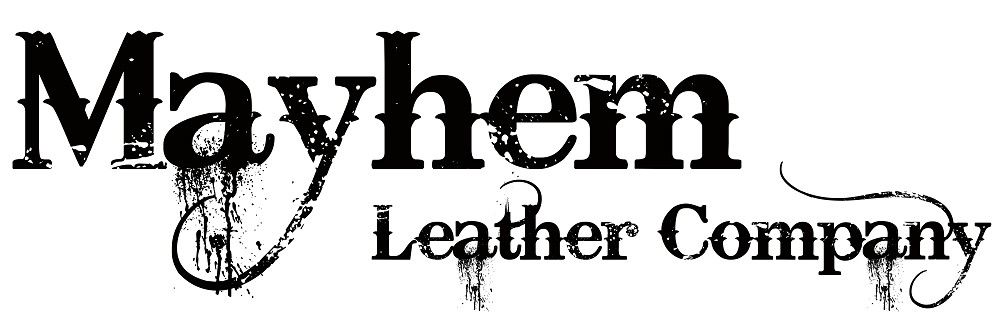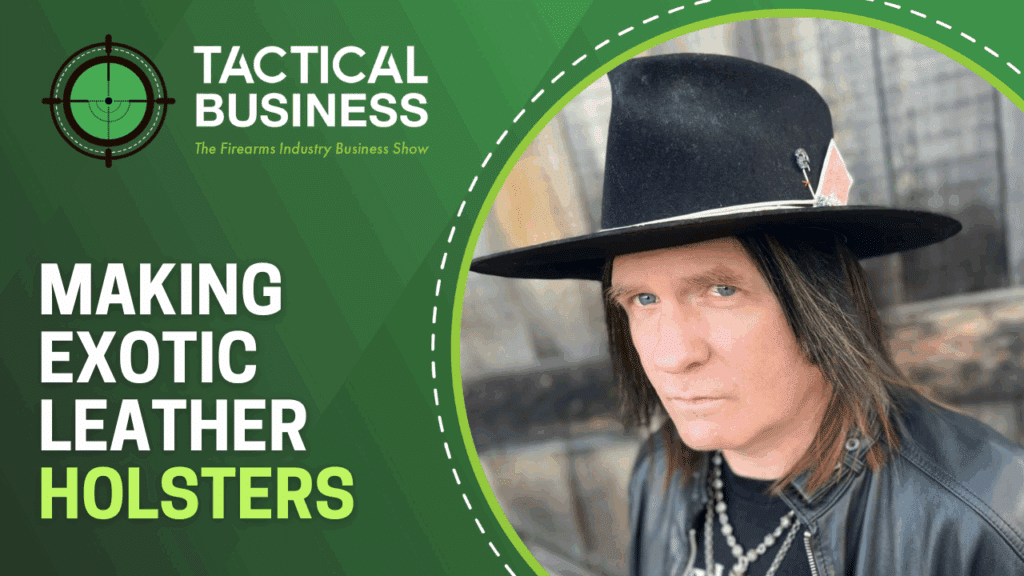About This Episode
In this episode of the Tactical Business Podcast, host Wade Skalsky sits down with Christopher Ryan, the founder and sole craftsman behind Mayhem Leather Company. Christopher shares his remarkable journey from a full-time audio/visual technician to a master artisan creating high-end, custom leather holsters and exotic gun grips.
Insights In This Episode
- He rejected Kydex to specialize in leather, mastering a less crowded, high-value niche with higher barriers to entry.
- By building a direct, trusted relationship with one of only two viable US tanneries, he secured a critical and reliable supply chain advantage.
- He implicitly uses value-based pricing for exotic custom orders, where the price reflects the artistry and rarity, not just hours worked.
- He systematically says “no” to adjacent projects (e.g., purses, bags) to avoid scope creep and maintain focus on his profitable core offering.


Today’s Guest
Christopher Ryan | Mayhem Leather Co.
Mayhem Leather Co. crafts premium, handcrafted leather goods for a life of adventure. Renowned for their rugged motorcycle gear, they also expertly craft high-quality holsters for everyday carry. Each product, from wallets to holsters, is made from full-grain leather, designed for superior durability and to develop a unique patina over a lifetime of use.
Featured on the Show

About Tactical Business
Tactical Business is the weekly business show for the firearms industry. The podcast features in-depth interviews with the entrepreneurs, professionals and technologists who are enabling the next generation of firearms businesses to innovate and grow.
Episode Summary
Christopher Ryan: From 9 to 5 To Making Exotic Leather Holsters
In this episode of the Tactical Business podcast, host Wade Skalsky interviews Christopher Ryan, the founder and sole craftsman behind Mayhem Leather Company. Christopher shares his remarkable journey from a full-time audio/visual technician to a master artisan creating high-end, custom leather holsters and exotic gun grips.
From a DIY Wallet to a Budding Craft
Christopher’s journey into leatherwork began over 20 years ago out of necessity; he wanted an expensive wallet but couldn’t afford it. Encouraged by his now-wife, he took a class at Tandy Leather and was instantly hooked. What started as a hobby making small items on his living room floor gradually evolved as friends began requesting custom pieces, eventually offering to pay for his work.
The Leap to Entrepreneurship
For years, Christopher balanced his craft with his day job at a ministry in Orlando. After the business closed and his family moved to North Carolina, he decided to pursue leatherworking full-time about seven years ago. He began by tirelessly building his brand through gun shows, often traveling three to four weekends a month to connect directly with customers and build word-of-mouth recognition.
Navigating Challenges and Sourcing Materials
The path wasn’t without its obstacles. Christopher highlighted several key challenges:
- Time-Consuming Process: Handcrafting leather holsters is a slow, meticulous art.
- Steep Startup Costs: The initial investment in quality tools and materials was significant.
- Mastering the Craft: He spent years learning through trial, error, and consulting experienced makers to ensure his holsters were both safe and functional.
He also detailed the complexities of sourcing materials, relying on a trusted relationship with one of only two U.S. tanneries he trusts for his primary material—vegetable-tanned leather, chosen for its durability and safety for firearms.
The Allure of Exotics and Business Philosophy
A significant portion of his business now involves exotic materials like stingray, elephant, and alligator, often used for stunning 1911 grips. While these pieces act as major marketing draws at shows, they present their own unique challenges, such as the difficulty of working with hard, calcified stingray. Christopher emphasizes the importance of staying within his core competency, saying “no” to projects like purses to maintain quality and focus on what he does best.
Advice for Aspiring Makers
Christopher’s advice for those looking to start a similar hands-on business is straightforward: practice relentlessly, don’t be afraid to make mistakes, and never stop learning. He credits his success to taking a leap of faith before he felt completely ready and his dedication to a craft where the product’s quality speaks for itself.
